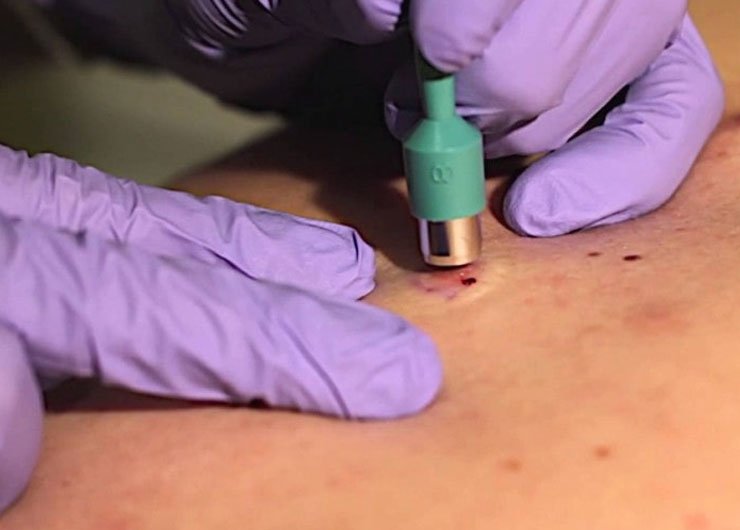Dermatosurgery

Dermatosurgery
Dermatosurgery, also known as dermatologic surgery or dermatological surgery, is a specialized branch of dermatology that focuses on the surgical management of various skin conditions, lesions, tumors, and cosmetic concerns. Dermatologists who specialize in dermatosurgery are trained to perform a wide range of surgical procedures aimed at diagnosing, treating, and improving the appearance of the skin, hair, nails, and underlying tissues.
Common Procedures in Dermatosurgery:
- Excisional Surgery: Dermatologists use precise surgical techniques to remove benign and malignant skin growths, cysts, moles, and lesions. The goal is to achieve complete removal while minimizing scarring.
- Mohs Micrographic Surgery: This specialized technique is used to treat skin cancer, particularly basal cell carcinoma and squamous cell carcinoma. It involves removing thin layers of tissue, examining them under a microscope, and continuing this process until all cancerous cells are removed.
- Laser Surgery: Lasers are utilized to treat various skin conditions, including vascular lesions, pigmented lesions, tattoo removal, and scar revision. Laser surgery offers precision and minimal damage to surrounding tissues.
- Cryosurgery: Liquid nitrogen is used to freeze and destroy benign and premalignant skin lesions, such as warts, actinic keratoses, and certain skin cancers.
- Electrosurgery: This involves using electrical currents to cut or coagulate tissue. It’s commonly used for procedures like electrocautery, electrodesiccation, and electrofulguration.
- Skin Grafting: Skin grafts involve transplanting skin from one area of the body to another, commonly used to treat large wounds, burns, and skin defects after tumor removal.
- Scar Revision: Dermatosurgeons can perform procedures to minimize the appearance of scars, such as surgical scar excision, laser therapy, or dermal fillers.
- Nail Surgery: Surgical procedures on the nails are performed to treat conditions like ingrown nails, nail tumors, and nail bed infections.
- Cosmetic Dermatosurgery: Dermatosurgeons can perform cosmetic procedures like botulinum toxin injections (Botox), dermal fillers, chemical peels, and microdermabrasion to improve the appearance of wrinkles, fine lines, and skin texture.
Dermatosurgery requires specialized training, as it involves a combination of medical knowledge, surgical skills, and an aesthetic sense to achieve the best possible results while preserving the health and appearance of the skin. Patients undergoing dermatosurgical procedures should receive thorough preoperative assessments and postoperative care to ensure optimal outcomes and minimal complications. It’s important to consult with a board-certified dermatologist or dermatosurgeon to determine the most appropriate treatment for your specific condition or concern.



